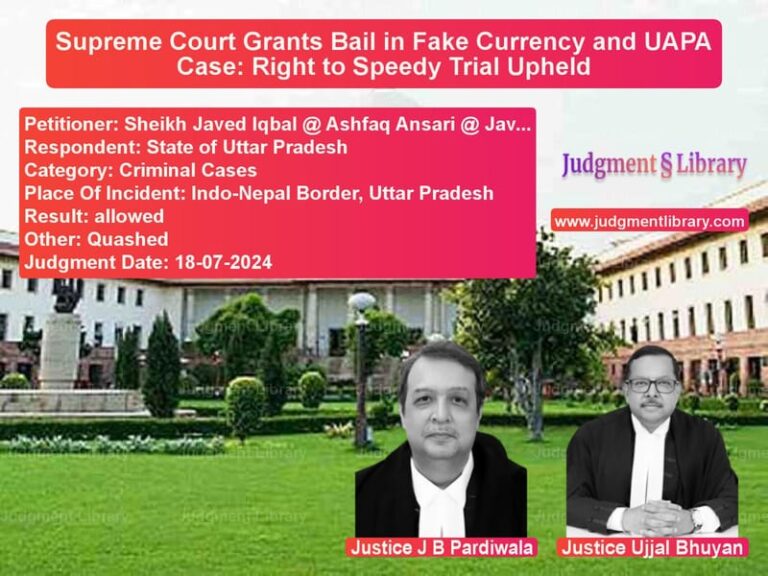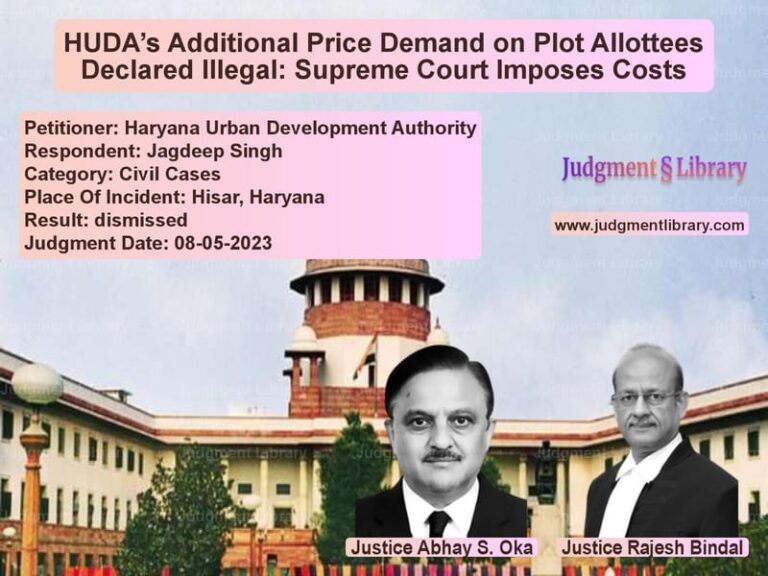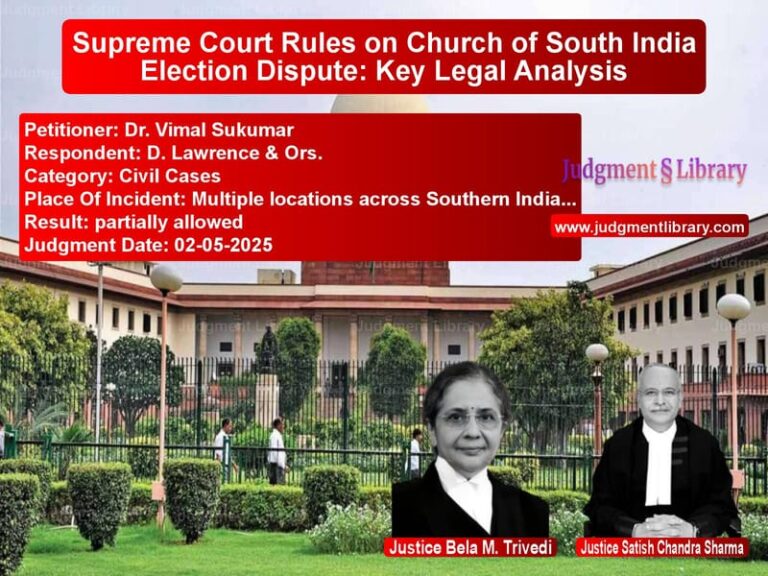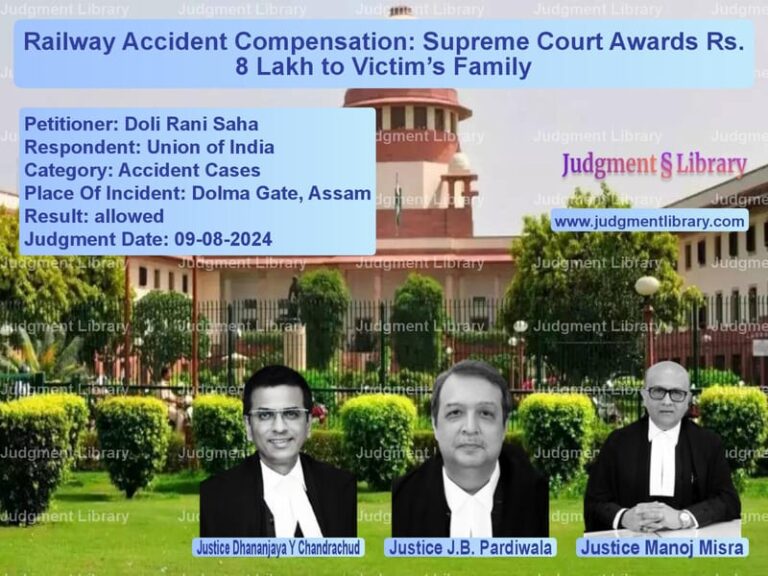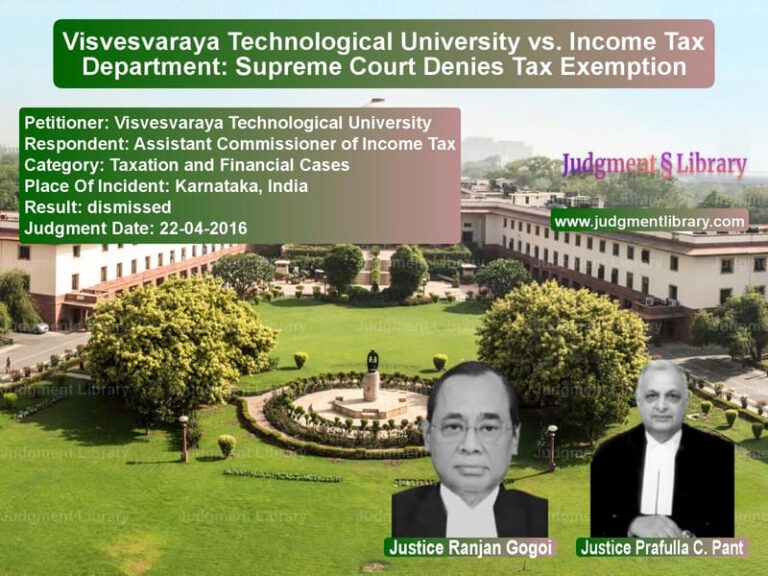Murder Conviction Upheld: Supreme Court Rejects Appeal in Uttar Pradesh Criminal Case
The case of Karan Singh vs. State of Uttar Pradesh & Others revolves around a brutal murder over a financial dispute, where multiple accused were convicted for shooting the victim. The Supreme Court ruled on whether the conviction was justified based on eyewitness testimony and forensic evidence, ultimately upholding the lower courts’ decisions.
This judgment is significant as it reaffirms the importance of consistent witness testimony, forensic findings, and the principle that minor discrepancies in statements do not weaken an otherwise strong prosecution case.
Background of the Case
The case pertains to the murder of Brahmapal Singh in the Shahjahanpur District of Uttar Pradesh. The key events in the case are as follows:
- April 8, 1980: The victim, Brahmapal Singh, was shot dead following a dispute over an unpaid sum of Rs. 1,900 related to the sale of a buffalo.
- April 8, 1980: The complainant, Rati Pal, filed an FIR at Kaanth Police Station, naming the accused.
- August 1, 1983: The Sessions Court convicted the accused under Sections 302, 307, and 149 of the IPC and sentenced them to life imprisonment.
- July 30, 2018: The Allahabad High Court dismissed the criminal appeal, affirming the trial court’s judgment.
- March 2, 2022: The Supreme Court upheld the conviction, rejecting the accused’s claims of insufficient evidence.
The prosecution alleged that the accused, led by Rajkumar Singh and including Karan Singh (appellant), fired at the victim and his companions, causing fatal injuries.
Legal Issues Considered
- Whether the eyewitness testimony was reliable.
- Whether the forensic evidence supported the prosecution’s case.
- Whether the absence of weapon recovery weakened the case.
- Whether the long delay in trial and appeal impacted the fairness of conviction.
Petitioner’s Arguments (Karan Singh)
- The appellant argued that there was no direct evidence linking him to the crime.
- The prosecution witnesses were biased and unreliable, as they were related to the victim.
- No weapon was recovered from him, and the bullets in the victim’s body were from a different firearm.
- The trial and appeal process had taken too long, and five of the six co-accused had died during the trial period.
Respondent’s Arguments (State of Uttar Pradesh)
- The prosecution presented three eyewitnesses who identified Karan Singh as one of the shooters.
- The post-mortem report showed multiple gunshot wounds, confirming the prosecution’s version.
- Minor discrepancies in statements do not override consistent and corroborative evidence.
- The appellant was granted bail during the trial but was taken into custody only after the High Court upheld the conviction.
Supreme Court’s Judgment
The Supreme Court bench, comprising Justices Indira Banerjee and V. Ramasubramanian, upheld the conviction and ruled that the prosecution had proved the case beyond reasonable doubt.
1. Reliability of Eyewitness Testimony
“The prosecution case was proved from the statements of three eyewitnesses, apart from the medical and forensic evidence.”
The Court noted that the witnesses were consistent in their statements and had no reason to falsely implicate the accused.
2. Forensic Evidence Corroborates Witness Accounts
“The post-mortem report revealed multiple gunshot wounds, confirming the prosecution’s version of multiple shooters firing at the victim.”
The presence of gunshot wounds aligned with the prosecution’s claim that multiple accused, including Karan Singh, had opened fire.
3. Lack of Weapon Recovery Does Not Weaken the Case
“The absence of weapon recovery is not fatal to the case when there is credible eyewitness testimony and medical evidence.”
The Court emphasized that direct evidence in the form of witness testimony was sufficient.
4. Delay in Trial and Appeal Does Not Justify Acquittal
“The delay in trial and appeal does not affect the merits of the conviction when the evidence is strong and consistent.”
The Court rejected the argument that long litigation weakened the case against Karan Singh.
Key Takeaways from the Judgment
- The Supreme Court reaffirmed that consistent eyewitness testimony is a strong basis for conviction.
- The absence of weapon recovery does not weaken a case if other evidence is compelling.
- Minor discrepancies in statements do not automatically discredit the prosecution’s case.
- Delays in trial and appeal do not justify acquittal if the conviction is based on strong evidence.
Implications of the Verdict
This ruling has significant implications for criminal law and evidence evaluation:
- Eyewitness testimony remains a crucial piece of evidence in criminal trials.
- Courts will not overturn convictions based on minor inconsistencies in witness statements.
- Even in long-pending cases, strong evidence will hold and lead to convictions.
Overall, this Supreme Court ruling reinforces the legal principle that convictions should be based on comprehensive and corroborative evidence rather than technical flaws or procedural delays.
Petitioner Name: Karan Singh.Respondent Name: State of Uttar Pradesh & Others.Judgment By: Justice Indira Banerjee, Justice V. Ramasubramanian.Place Of Incident: Shahjahanpur, Uttar Pradesh.Judgment Date: 02-03-2022.
Don’t miss out on the full details! Download the complete judgment in PDF format below and gain valuable insights instantly!
Download Judgment: karan-singh-vs-state-of-uttar-prade-supreme-court-of-india-judgment-dated-02-03-2022.pdf
Directly Download Judgment: Directly download this Judgment
See all petitions in Murder Cases
See all petitions in Attempt to Murder Cases
See all petitions in Judgment by Indira Banerjee
See all petitions in Judgment by V. Ramasubramanian
See all petitions in dismissed
See all petitions in supreme court of India judgments March 2022
See all petitions in 2022 judgments
See all posts in Criminal Cases Category
See all allowed petitions in Criminal Cases Category
See all Dismissed petitions in Criminal Cases Category
See all partially allowed petitions in Criminal Cases Category


